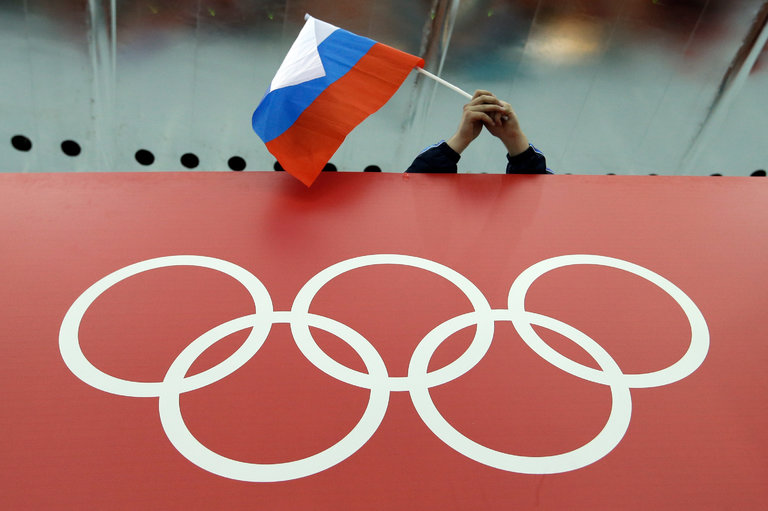
Russia’s isolation from the international sports community appears set to grow after the country’s most senior official warned it would not publicly accept the findings of the McLaren Report, a key factor set by the World Anti-Doping Agency (WADA).
insidethegames revealed last night that the Russian Anti-Doping Agency (RUSADA) must fulfill at least 12 more criteria before they can be ruled to be compliant with international rules.
Top of the “Roadmap to Code Compliance,” a document published today by WADA, is that the Russian Government – through the Ministry of Sport – must “publicly accept the reported outcomes of the McLaren Investigation.”
WADA claimed that the Roadmap has been developed and agreed with RUSADA, as well as the Ministry of Sport, the Russian Olympic Committee (ROC) and the Independent Public Anti-Doping Commission, a group headed by International Olympic Committee honorary member Vitaly Smirnov, a former Minister of Sport in the old Soviet Union.
Smirnov, though, has claimed they will not do what WADA is demanding and do not accept accusations in the McLaren Report published in July 2016 that Russia was behind a state-sponsored doping program and that they covered up positive tests before, during and after London 2012 and Sochi 2014 and several other major international events.
A second McLaren Report, published last December, claimed that more than 1,000 Russian athletes were involved in a state-sponsored scheme.
“We have repeatedly said that as a whole we do not deny and recognize that we had problems, there was a failure, and we are working on it,” Smirnov told R-Sport news agency.
“We have established a well-known anti-doping program approved by the President [Vladimir Putin].
“As for the report, we have repeatedly said that it contains certain controversial positions and provisions and representatives of our sports organizations have already expressed themselves.
“Undoubtedly, no-one is going to accept this report.”
There had been hope that RUSADA would be declared compliant again at the next meeting of the WADA Foundation Board in Seoul on November 16.
Other key criteria among the dozen set by WADA include the Russian Government providing access for international authorities to store urine samples in the Moscow Laboratory currently sealed off due to a Federal investigation.
Another leading requirement is that RUSADA’s Supervisory Board must select a new director general via a transparent, external and objective application and recruitment process overseen by two international experts.
In May, WADA ruled that RUSADA was still non-compliant but was allowed to resume testing under supervision of internationally appointed experts and UK Anti-Doping after it met several conditions.
Alexander Zhukov, President of the ROC, however, was more conciliatory about WADA’s demands.
“WADA published criteria, which we keep gradually working on,” he told Russia’s official news agency TASS.
“We plan to implement all of the set criteria this fall.
“I can say that it will be certainly done by the end of the year.”

Sir Craig Reedie, the President of WADA, remains optimistic that a solution can be found.
“We are in regular contact with the Russian authorities over the implementation of the agreed Roadmap and I have been able to agree many steps forward,” he told insidethegames today.
“I am sure this process will continue.”
Russia is currently suspended by the International Association of Athletics Federations (IAAF) and the International Paralympic Committee.
Russian Athletics Federation President Dmitry Shlyakhtin is due to address IAAF Congress here to appeal for the ban on his country from international competition to be lifted.
He is expected to be unsuccessful, however, with a large majority of the the IAAF’s Member Federations expected to back its ruling Council and maintain the suspension.
As well as being banned from athletics at last year’s Olympic Games, Russia was also barred from taking part in the Paralympic Games at Rio 2016.
The IOC are also currently conducting two separate investigations into Russian doping.
The Oswald Commission, headed by Swiss IOC member Denis Oswald, is looking into “allegations” of sample manipulation and is also analyzing all samples given by Russian athletes at London 2012.
The Schmid Commission, led by another Swiss in IOC Ethics Commission Samuel Schimd, is addressing the “institutional conspiracy across summer and winter sports athletes who participated with Russian officials within the Ministry of Sport and its infrastructure.”
Both Commissions are expected to be completed in October and could, potentially, lead to the IOC banning Russia from next year’s Winter Olympics in Pyeongchang.
By Duncan Mackay
Republished with permission from insidethegames.biz.